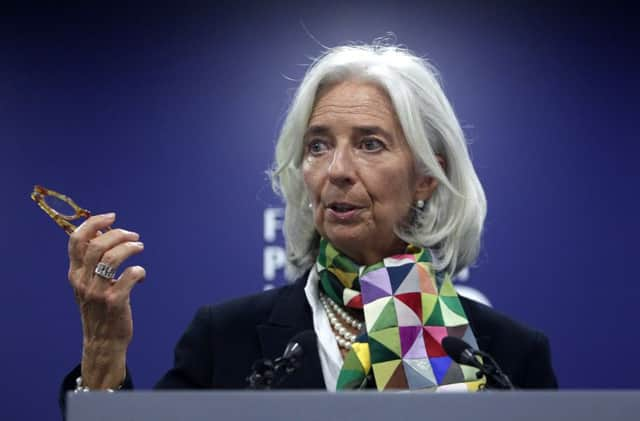IoD warns of slowdown as 2016 to see rate rise


The Institute of Directors (IoD) suggested profitability of UK businesses had reached all-time highs and the membership body believes things will change in the coming year.
The IoD said 2015 may have been “as good as it gets” for jobs, with employment possibly falling slightly from its current record high.
Advertisement
Hide AdAdvertisement
Hide AdThe directors’ group also predicted improved productivity, which it said is likely to return to its long-term trend rate of growth in 2016.
James Sproule, chief economist at the IoD, said: “We have been living in a world of extraordinarily low interest rates for eight years, and are now at risk of seeing asset bubbles develop.
“The rate-setters on the [Bank of England’s] monetary policy committee have so far taken a cautious approach, but we believe they will have no choice but to start raising rates [in 2016] if they are to get monetary policy back to a position where it could be effective again if we hit another crisis.
“Ultra-low interest rates have promoted misallocation of credit, as larger businesses which can borrow have levered themselves while smaller businesses have not been able to gain a similar advantage.
“But this trend has almost certainly run its course and any interest rate rise will make borrowing less attractive and, as a consequence, corporate returns are likely to disappoint as the year progresses.”
Today’s cautious outlook from the IoD comes after a warning yesterday from the boss of the International Monetary Fund (IMF) that global growth next year would be “disappointing”.
IMF managing director Christine Lagarde said the prospect of further interest rate hikes in the US and an economic slowdown in China contributed to uncertainty and helped slow worldwide growth.
Added to that, she noted, growth in global trade had slowed considerably and a slide in raw material prices and oil was presenting challenges for economies reliant on them. “All of that means global growth will be disappointing and uneven in 2016,” Lagarde said.
Advertisement
Hide AdAdvertisement
Hide AdWhile countries other than highly developed economies were generally better prepared for higher borrowing costs than previously, the IMF chief expressed concern about their ability to absorb any shocks.
In an article for German newspaper Handelsblatt, Lagarde said: “Most highly developed economies except the USA and possibly Britain will continue to need loose monetary policy but all countries in this category should comprehensively factor spillover effects into their decision-making.”